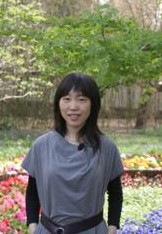
NameYu Xueming
PositionsProfessor, Department of Philosophy
Dean,School of Humanities
Director, Center for Religion and Law Studies (CRLS), China University of Political Science and Law
Qualifications
· Sept. 2001 -- July 2004, Ph.D. in Religious Studies, Department of Philosophy, Renmin University of China
· Sept. 1991 -- July 1994, M.A. in Chinese Philosophy, Department of Philosophy, Renmin University of China
· Sept. 1985 -- July 1989, Bachelor of Law, School of Philosophy and Social Sciences, Zhejiang University
Working experiences
· 2004-now Professor, Department of Philosophy, China University of Political Science and Law
· 1994-2001: Lecturer/ Associate Professor, Beijing Institute of Education
· 1989-1991: Teaching Assistant, School of Philosophy and Social Sciences, Zhejiang University
Student education
· History of Chinese Philosophy, especially in Chinese Buddhism
· Introduction to Religious Studies
· Classic Readings of Religious Studies
· Selected Works of Buddhism
· Religion and Society
· Lecture: “Religion and Law”
Publications
Books
1. A Study of Monk Zhan Ran: Refutation Against a False History — the Revival of the Tiantai Denomination by Zhan Ran in Tang Dynasty,Beijing: China Social Sciences Press, 2006.
2. Co-authored with Chen Hong,Philosophy and Religions in Ancient China, Shanxi: Hope Publishing House, 1999; Taiwan: Wenjin Press, 2001.
3. Co-authored with Huang Xianian & ZhaoYiping,The Buddha Light Illuminating All: Buddhism, Beijing: World Affairs Press, 1999.
Articles
1. “In Berman: From Belief-in-Law to Reflection of Modernity”,The World Religious Cultures,2019 (1):7-13.
2. “Tiantai Denomination and ’The Awakening of Faith of Ashvagosha’-- Taking Zhan Rran’s Citation as the Core”, Ke Xiang (ed.),The First Tiantai Buddhism Symposium -- Tang and Song Tiantai Buddhist Proceedings, Shanghai Bookstore Publishing House, August 2018.
3. 《<法華経>と智顗の教育実践》,《東アジア仏教研究》(第14号)ISSN1348-4532.
4. “The Modern Significance of Chinese Buddhist Study Tour Tradition”,Buddhism Thought and Modern Interpretation, Zhonghua Book Company Hong Kong Limited, 2014, pp.50-71.
5. “Re-discrimination of the ‘Sectarian Issues’ in the Sui and Tang Dynasties”,Zhejiang Academic Journal, 2013 (2); Reprinted by the National People’s Congress.
6. “The Characteristics and Influences of Confucianism: from the Perspective ofConfucian-Buddhist Relationship”,Journal of International Confucianism, 2011 (18)A:111-132.
7. “The Statue of the Lotus Sutra in the Classification of Tiantai Teachings”,Sino-Japanese-Korean Academic Dialogue on Tiantai Denomination,People’s Publishing House, 2011, pp.111-132.
3. “The Future of Humanistic Buddhism without Deviating from Its Basic Ideas and Principles”,A Collection of Academic Symposium on Humanistic Buddhism between Taiwan and the Mainland, Taiwan: Foguangshan Foundation for Buddhist Culture & Education, 2009.
4. “On Liangsu’s ‘Zhiguan Tongli Yi’”,Buddhist Studies and Studies on Chinese Culture: A collection to celebrate Prof. Lou Yulie’s 75th birthday, Jiuzhou Press, 2009. pp. 111-125.
5. “The Position of Religion in the Society under Law”,The Cultural Soft Power and the Revival of Nation,Beijing Normal University Press,2009, pp.34-47
6. “Zhanran and the Characteristics in Tiantai Denomination in Mid-Tang Dynasty”,Buddhism and Chinese Traditional Culture: paper collection in celebration of Mr. Yang Zenwen’s 70th birthday, China Social Sciences Press, 2009, pp.645-656.
7. “The Debate on Practicality and Principle of Pure Land in Tiantai Denomination”,The Studies on Chinese Pure Land Sect,Religious Culture Publishing House,2008, pp.279-287.
8. “The Structure of the Classification of Buddhist Teachings by Ven. Zhiyi”,Tianwen, Jiangsu People’s Publishing House, 2008, .pp.271-292
9. “The Development of Dharma Lineage of Tiantai Denomination in Tang Dynasty”,Humanistic Forum,China Social Sciences Press, 2007, pp.266-276.
10. “The Development of Buddhism and the Developing Buddhism”,Henan Social Sciences, 2007(3). The whole paper included inXinhua Wenzhai, 2007(19).
11. “On the Buddha-nature of Non-living beings in Chan Buddhism”,A collection of the Symposium “The Excellent Culture of Chan School and the Construction of Harmonious Society”,Religious Culture Publishing House,2007, pp.209-217.
12. “The Development of the Concept ‘Lotus Samadhi’ and the Statue of Samantabhadra in the Practices of Tiantai Denomination”,Samantabhadra and Chinese Culture, Beijing: China Publishing House, 2006, pp.193-213.
13. “Reexamining the Idea of Non-living Beings with Buddha-nature and Its Status in the Ideological System of Tiantai School”,Research of Buddhism,2006 (15):258-269.
14. “Ven. Zhanran’s Way to Be the Patriarch of Tiantai Denomination”,The Religious Cultures in the World,2006(2): 23-24.
15. “Liangsu and Tiantai Denomination: the Interaction of Confucianism and Buddhism in Tang Dynasty”,The Culture of Buddhism,2005(4): 49-55.
16.“Two Issues in Ven. Zhanran’s Life”,A Collection on the Studies of Buddhism in Wu and Yue Regions,Religious Culture Publishing House, 2004.
17. “A Brief Chronicle of Ven. Zhanran’s Life”,Research of Buddhism,2003 (12): 214-222.
18. “A Review on the Studies of Ven. Zhanran in Mainland China”, Zhejiang Academic Journal, 2004(1); the whole paper included inJournal Copies of Renmin University of China (Religion Volume), 2004(3): 133-136.
19.“The Relationship of Ven. Zhanran and Chan Buddhism”,Studies in World Religions, 2003(3): 45-51; the whole paper included inJournal Copies of Renmin University of China (Religion Volume),2003(6): 23-27.
20. “On Ven. Zhiyi’s Concept of ‘Observing the Mind’ in Tiantai Denomination”,South Asian Studies,1997(1).
Research Grants
1. “The Significance of Intellectual History of Mutual Conflict and Interpretation among Buddhist Sects in Mid-tang Dynasty”, funded by National Social Sciences Fundation of China, 2006
2. “On Ven. Zhanran”, funded by China University of Political Science and Law, 2006.
3. “Courses System Reform of Religious Studies: Research and Practice”,granted by China University of Political Science and Law,2009.
4. “Buddhism and Daoism in Legal Society of Tang and Song Dynasties”, funded by the Institute for the Study of Buddhism and Religious Theory, RUC, the Key Research Institute of Humanities and Social Science in Universities, the Ministry of Education of People’s Republic of China, 2010.
External roles
1. Society Member,Chinese Association of Religious Studies, TheChinese Academy of Social Sciences
2. Honorary Research Fellow, Center for Buddhist Studies(CBS), The Chinese Academy of Social Sciences
3. Part-time Researcher, Institute for the Study of Buddhism and Religious Theory, Renmin University of China
4. Member,China Philosophy History Association
5. Member, Chinese Religious Society